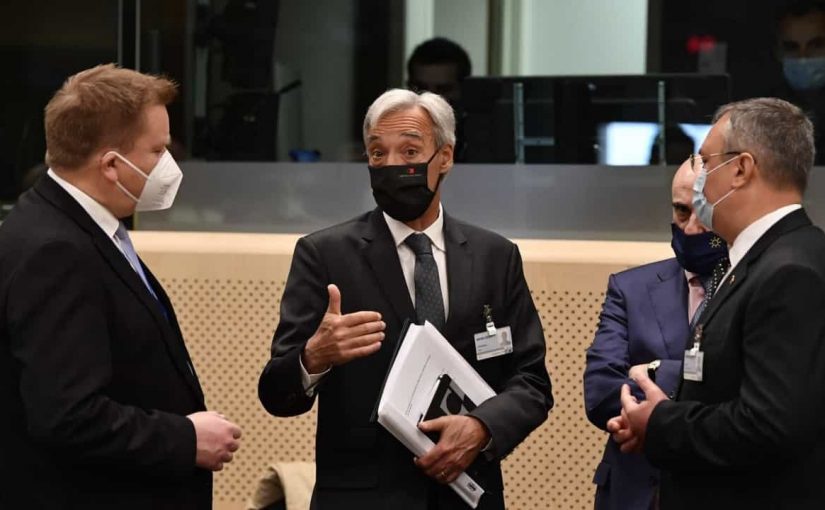Mozambique: Chapo visits Nguni Monarch - AIM | Watch
Mozambique: Portugal ‘comforted’ as several countries agree to join EU mission

Photo: Lusa
Portugal’s defence minister João Gomes Cravinho said he was “comforted” by the willingness expressed on Thursday in Brussels by “several countries” to join a European Union (EU) training mission to help Mozambique address the situation in Cabo Delgado.
In a press conference after a meeting of EU defence ministers, which had Mozambique among the main points under discussion, Gomes Cravinho confirmed that Portugal could contribute with military personnel “up to 50% of the EU mission”, as indicated shortly before by the high representative for foreign and security policy, Josep Borrell, and welcomed the willingness of other member states to join, as well as the political consensus around the need for the mission.
“There was indeed a good discussion on Mozambique, with many ministers referring to what is happening in northern Mozambique and linking it to experiences in other parts of the African continent. There was political consensus on the desirability of sending a European Union training mission to Mozambique, in response to a request by Mozambique’s foreign minister, Veronica Macamo, at the end of last year,” said Gomes Cravinho.
Considering that this consensus is “critical from a political point of view”, the minister said that later this month, “in a couple of weeks, a technical mission will go to Mozambique to check the parameters for an EU mission to take up its duties, and several countries have expressed their willingness to support with military forces”.
“On our side, we have made that commitment – it will depend, of course, on the availability of other countries – but on our side, we can go up to 50% of the EU mission with Portuguese military personnel,” he said at the time.
Questioned about which member states have said they are willing to integrate the mission, João Gomes Cravinho said he would prefer that the member states themselves, naturally, express their availability in public, as there is a certain degree of confidentiality. It is possible that, in some cases, there are still internal procedures that must be fulfilled, and therefore I would like them to announce it themselves.
“What I can say is that I was comforted to know that there are clearly enough [contributions] to be confident about the possibility of mounting an EU mission,” he added.
João Gomes Cravinho said that what was being considered is not an executive mission, or in other words, it is not a mission that assumes sovereign functions. It is a non-executive mission essentially dedicated to training Mozambican special forces.
In that sense, it will not be located in the area where there are conflicts. It will be in other parts of Mozambique, probably in two distinct parts, which are regions where security concerns are not particularly intense, he pointed out.
Shortly before Gomes Cravinho’s press conference, the head of European diplomacy, at the formal press conference of the meeting – which he chaired given that it was a Foreign Affairs Council on the Defence side – said he hoped that the support mission to Mozambique would be launched as soon as possible since the situation in Cabo Delgado requires a sense of urgency on the part of the EU which he admitted did not always exist.
Borrell recalled that Portugal had offered half the personnel for the European mission, adding that it has sent military instructors on the ground but stressed that this Portuguese mission must be considered an advance and must be complemented by other member states.
Armed groups have terrorised Cabo Delgado since 2017, with some attacks claimed by the ‘jihadist’ group Islamic State, in a wave of violence that has led to more than 2,500 deaths, according to the ACLED conflict registration project, and 714,000 displaced people, according to the Mozambican government.
The most recent attack occurred on 24 March against the town of Palma, causing dozens of deaths and injuries in a still ongoing assessment.
The Mozambican authorities regained control of the town. Still, the attack led oil company Total to abandon indefinitely the site of the gas project scheduled to start production in 2024 and on which many of Mozambique’s economic growth expectations for the next decade are anchored.













Leave a Reply
Be the First to Comment!
You must be logged in to post a comment.
You must be logged in to post a comment.